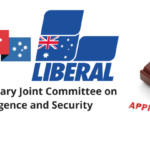The Offence of Reckless Foreign Interference in Australia

A Sydney businessman accused of unlawfully selling information to Chinese spies has vehemently denied the allegations and is vowing to defend the charges.
55-year old Bondi marketing director, Alexander Csergo, was charged earlier this year with one count of reckless foreign interference under section 92.3 of the Criminal Code Act 1995 (Cth) (‘the Act’) which carries a maximum penalty of 15 years in prison.
The offence
To establish the charge of reckless foreign interference against Mr Csergo, the prosecution will need to prove four ‘essential elements’ (or ingredients) beyond a reasonable doubt that.
- That he engaged in specific conduct,
- That his conduct was on behalf of, or in collaboration with, a foreign principal, or a person acting on behalf of a foreign principal, or was directed, funded or supervised by a foreign principal, or a person acting on behalf of a foreign principal,
- That he was reckless as to whether his conduct would:
(a) Influence a political or governmental process of the Commonwealth, or of a state or territory within the Commonwealth,
(b) Influence the exercise of an Australian democratic or political right or duty, whether within Australia or overseas,
(c) Support intelligence activities or a foreign principal, or
(d) Prejudice Australia’s national security, and
- That any part of his conduct:
(a) Was covert or involved deception
(b) Involved a threat to cause serious harm, or
(c) Involved a demand with menaces.
What is the definition of ‘reckless’?
Under the Act, being ‘reckless’ is defined as being aware there was a substantial risk the conduct would bring about a state of affairs described in (3) above, and it was unjustifiable to take that risk, but the defendant went ahead with his or her actions regardless.
Who is considered a ‘foreign principal’?
The Act defines a ‘foreign principal’ is defined as:
- A foreign government principal
- A foreign political organisation
- A public international organisation
- A terrorist organisation, or
- An entity or organisation owned, directed or controlled by a foreign principal/s.
What is the meaning of ‘deception’?
A ‘deception’ encompasses any intentional or reckless deception, whether by words or other conduct, and whether as to fact or law, and includes:
- A deception as to the intentions of the defendant or other person, and
- Conduct that caused a computer, machine or electronic device to make an unauthorised response.
What does it mean to ‘menace’?
A ‘menace’ is defined as including:
- An express or implied threat of conduct that is detrimental or unpleasant to another person, and
- A general threat of detrimental or unpleasant conduct that is implied, because of the status, office or position of the maker of the threat.
Proof of particular foreign principal is not required
A person may be found guilty of the offence regardless of whether the person had a particular foreign principal in mind, or whether he or she had more than one foreign principal in mind.
Statutory legal defence
A person is not guilty of the offence if the person establishes, ‘on the balance of probabilities’, that his or her conduct was:
- In accordance with a law of the Commonwealth
- In accordance with an arrangement or agreement to which the Commonwealth was party, or
- In the person’s capacity as a public official.
General legal defences
A range of general legal defences also apply to the charge, including duress, necessity and self-defence.
In the event evidence is raised of a general legal defence, the onus shifts to the prosecution to prove beyond a reasonable doubt that the defence does not apply.
The defendant must be acquitted if the prosecution is unable to do this.
Attorney-General’s consent required for prosecution
Significantly for Mr Csergo, the Commonwealth Attorney-General’s consent is required for a prosecution to proceed under the section.
It is understood the Attorney-General has not provided such consent.
If the prosecution does continue, Mr Csergo’s trial may occur ‘in camera’ (in secret) if the court believes this is in the interests of national security.
The specific allegations
The majority of the allegations against Mr Csergo relate to documents he wrote for two Chinese nationals, named “Ken” and “Evelyn”, after they approached him through social media and asked him to prepare reports for a think-tank.
Throughout 2021 and 2022, Mr Csergo wrote reports on a number of topics including lithium mining, German politics and Australia’s military alliance to the US along with other subjects to do with Australia’s defence, economic and national security arrangements.
He was paid about $4,000 for each report.
Mr Csergo became stuck in Shanghai during the height of Covid lockdowns. He told Australian police that he had held concerns, but could not be certain, that he was being groomed by intelligence officers from China’s powerful Ministry of State Security.
He also told police he had filed his reports with an open-source information system, and also wrote a fabricated interview with a former Australian prime minister – to placate his hosts until he could return to Australia.
This raises the possibility of the general legal defence of duress, which is where a person engages in conduct under imminent threat of serious physical harm to themselves, a loved-one or someone else close to them, and there is no reasonable way to avoid the perceived consequences of that threat.
Defiant behind prison walls
Mr Csergo is being detained in Parklea Correctional Centre, from where he has penned a letter asserting the case against him represents a false narrative that is not supported by the evidence, that it “will fail” and cause “embarrassment” to Australia in doing so.
His defence lawyers made an application for his release on bail last month, making similar submissions regarding the weakness of the prosecution case and offering security in the sum of $300,000.
But the presiding magistrate disagreed, finding that the case against him “cannot be described as weak” and refusing bail.
The matter will be back before Downing Centre Local Court this Wednesday, 29 November 2023.
Landmark cases
Mr Csergo is only the second person to be charged under Australia’s foreign interference laws.
The other person is a Melbourne businessman and local community leader named Di Sanh Duong, 68, who has pleaded not guilty in the Victorian County Court to one charge of preparing for or planning an act of foreign interference.
He faces up to 10 years in prison if convicted.
Lawyers and politicians are keeping a close eye on how these Commonwealth criminal cases unfold.








